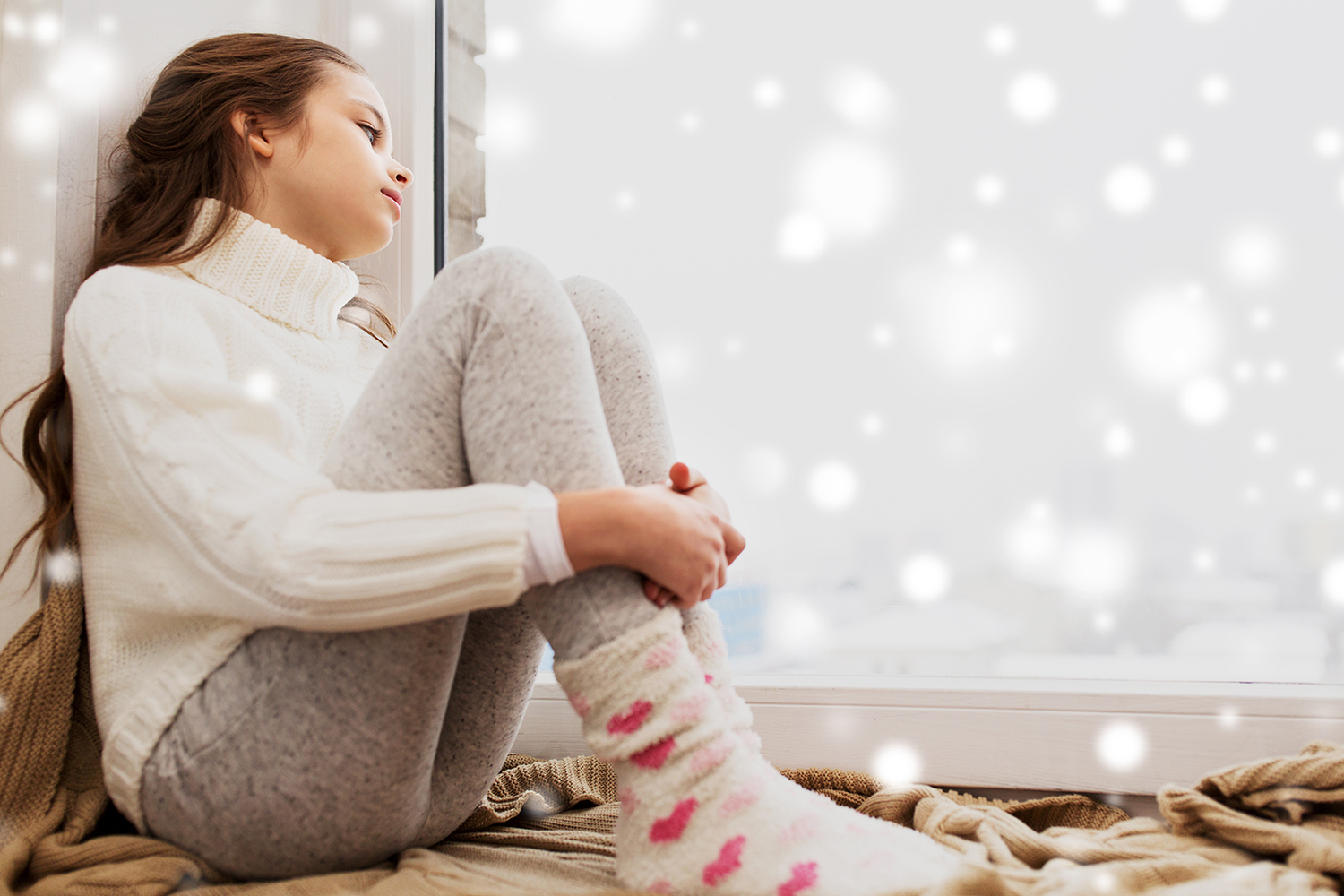Is it more than the winter blues?
In this monthly column, therapists from North Shore Child & Family Guidance Center answer your questions on issues related to parenting, mental health and children’s well-being. To submit a question, email communications@northshorechildguidance.org.
Question: My daughter is a mostly happy teen. Like all kids, she gets down sometimes, especially during the pandemic. But what I’ve noticed is that her mood seems to change dramatically in the winter. She becomes lethargic, unmotivated and sad. It’s a very noticeable difference from other times of the year. Is this a common thing with teens? What can I do to help her?
- Feeling Blue for My Girl
Dear Feeling Blue: It sounds like your daughter may be one of the six percent of the population who experiences SAD, which stands for seasonal affective disorder. While some level of winter blues isn’t uncommon, for some people, the shorter, darker and colder days that characterize this time of year cause clinical depression.
While SAD typically begins in a person’s early 20s, older children and teens can develop the condition. More than simply the “winter blues,” SAD is characterized by feelings of sadness and hopelessness nearly every day. People with SAD are unable to enjoy the activities that typically make them happy; they have difficulty concentrating and are often tired and/or agitated.
Two chemicals in the brain—melatonin and serotonin—are responsible for regulating energy, sleep cycles and mood. During winter’s darkness, melatonin levels increase, causing sleepiness and fatigue. Serotonin, which is sometimes referred to as the feel-good chemical, is produced in greater amounts with exposure to sunlight, and we naturally get less light in the long, cold days of winter.
Some people suffer from a lesser form of SAD, whose symptoms include low energy, weight gain, craving carbohydrates and social withdrawal.
Some other facts: Females are about four times more likely to develop SAD than their male counterparts. People with a history of depression are more prone to experiencing symptoms of SAD.
Here are some strategies that you can share with your daughter, whether she experiences full-blown SAD or the milder winter blues (and most of these are useful tips for everyone year-round!):
- Get as much direct exposure to sunlight as possible.
- Since being out in the sun can be difficult this time of year, either due to cold temperatures or long days inside, consider purchasing artificial “sunbox” lights. Their special fluorescent tubes mimic the sun’s beneficial rays (plain lights don’t have the same effect).
- Keep or start an exercise routine. If it’s not too cold out and it’s a sunny day, try to walk outside to reap the benefits of being in natural sunshine—but even if you work out indoors, it will have a positive impact on your mood.
- Turn up the heat (between 64 and 70 degrees) and drink hot beverages.
- Eat healthy foods, with a focus on fruits and vegetables. That’s good advice any time of year, but especially important in winter when your cravings for sugar and carbohydrates tend to increase.
- Don’t give in to the urge to isolate. Seeing friends and attending social functions are crucial to putting a damper on the blues.
- Keep active by engaging your creative side, whether it be taking up a new hobby or reintroducing a former favorite pastime. Encourage your child to participate in after-school clubs and other activities.
- Take up meditation and other mindfulness-based practices. You can find literally thousands of guided meditations on a free app called Insight Timer.
Finally, keep in mind that if your daughter’s depression is impacting her ability to function, it’s important to seek help from a mental health professional—regardless of the season.
During the pandemic, North Shore Child & Family Guidance Center is seeing clients both in person and remotely via telehealth platform. To make an appointment, call (516) 626-1971 or email intake@northshorechildguidance.org.
















